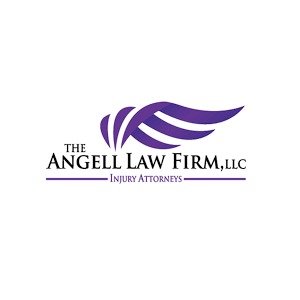Best Truck Accident Lawyers in Charleston
Share your needs with us, get contacted by law firms.
Free. Takes 2 min.
List of the best lawyers in Charleston, United States
About Truck Accident Law in Charleston, United States
Truck accidents can have devastating consequences, and understanding the legal aspects surrounding them is crucial. In Charleston, United States, laws exist to protect the rights of individuals involved in truck accidents and ensure they receive fair compensation for their damages.
Why You May Need a Lawyer
There are several situations where you may require legal help in a truck accident case:
- If you have suffered severe injuries or property damage as a result of a truck accident
- If you believe the truck driver or trucking company acted negligently, leading to the accident
- If you are being blamed for the accident and need to defend your rights
- If you are encountering challenges with insurance companies in obtaining fair compensation
- If you need assistance in navigating complex legal procedures and paperwork
Local Laws Overview
Understanding the key aspects of local laws relevant to truck accidents in Charleston, United States is essential. Some key points to remember include:
- South Carolina follows a modified comparative fault rule, which means your compensation may be reduced based on your level of fault in the accident.
- The statute of limitations for filing a personal injury or property damage claim is typically three years from the date of the accident.
- Charleston has specific regulations regarding trucking permits, route restrictions, and safety requirements that truck drivers and companies must adhere to.
Frequently Asked Questions
1. Can I file a lawsuit if I was partially at fault for the truck accident?
Yes, you can still file a lawsuit even if you were partially at fault. However, your compensation may be reduced based on your percentage of fault.
2. How long do I have to file a truck accident claim in Charleston?
In most cases, you have three years from the date of the accident to file a personal injury or property damage claim.
3. What damages can I claim after a truck accident?
You may be eligible to claim various damages, including medical expenses, lost wages, property damage, pain and suffering, and emotional distress.
4. How can I prove the truck driver or trucking company's negligence?
To prove negligence, you need to establish that the driver or company breached their duty of care, causing the accident and resulting damages. Evidence such as eyewitness testimonies, accident reports, and expert analysis can help support your claim.
5. How can a lawyer help in a truck accident case?
A lawyer with experience in truck accident law can gather evidence, negotiate with insurance companies, determine liability, calculate damages, and represent your interests in court if necessary. They can guide you through the process and work towards obtaining the maximum compensation for your losses.
Additional Resources
If you require further information or assistance regarding truck accidents in Charleston, United States, consider reaching out to the following resources:
- The South Carolina Department of Transportation's Trucking Division
- Local law firms specializing in personal injury and truck accident cases
- Charleston County Courthouse for legal guidance and information
Next Steps
If you need legal assistance in a truck accident case:
- Gather all relevant information and documentation related to the accident, including police reports, medical records, and insurance details.
- Research and consult reputable lawyers experienced in truck accident law.
- Schedule consultations to discuss your case and evaluate their expertise and approach.
- Select a lawyer you feel comfortable working with and initiate legal proceedings, if necessary.
- Follow your lawyer's guidance throughout the process and provide them with any additional information or evidence they may require.
Lawzana helps you find the best lawyers and law firms in Charleston through a curated and pre-screened list of qualified legal professionals. Our platform offers rankings and detailed profiles of attorneys and law firms, allowing you to compare based on practice areas, including Truck Accident, experience, and client feedback.
Each profile includes a description of the firm's areas of practice, client reviews, team members and partners, year of establishment, spoken languages, office locations, contact information, social media presence, and any published articles or resources. Most firms on our platform speak English and are experienced in both local and international legal matters.
Get a quote from top-rated law firms in Charleston, United States — quickly, securely, and without unnecessary hassle.
Disclaimer:
The information provided on this page is for general informational purposes only and does not constitute legal advice. While we strive to ensure the accuracy and relevance of the content, legal information may change over time, and interpretations of the law can vary. You should always consult with a qualified legal professional for advice specific to your situation.
We disclaim all liability for actions taken or not taken based on the content of this page. If you believe any information is incorrect or outdated, please contact us, and we will review and update it where appropriate.








